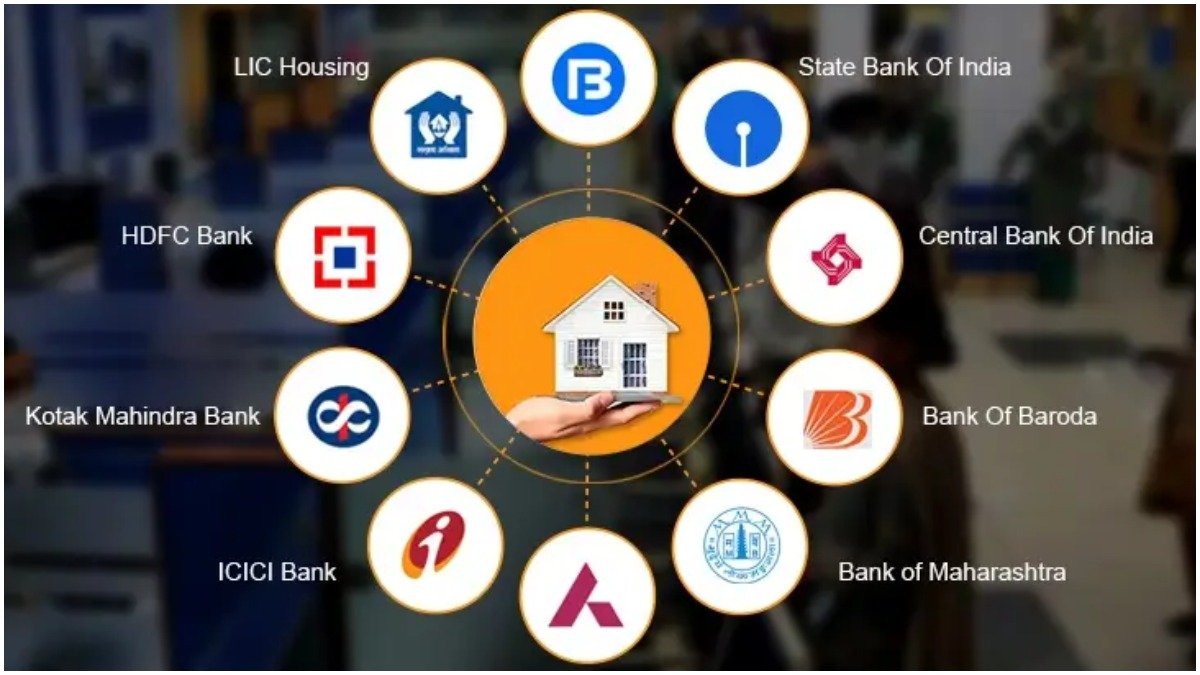In today’s fast-paced world, owning a home is more than just a dream—it’s a crucial life goal. With the real estate market in India continuing to grow in 2025, home loans have emerged as a key financial tool enabling millions to purchase or build their own homes. Whether you’re a first-time homebuyer or planning to upgrade your current living space, understanding how home loans work can help you make smarter financial decisions.
This comprehensive guide explores everything you need to know about home loans in India in 2025—from types and eligibility criteria to the loan process, interest rates, tax benefits, and more.
1. What is a Home Loan?
A home loan is a type of secured loan that allows you to borrow money from a bank or housing finance company to purchase, build, or renovate a home. The property itself is held as collateral by the lender until the loan is fully repaid. Repayment is typically done in Equated Monthly Installments (EMIs) over a period ranging from 5 to 30 years.
2. Types of Home Loans Available in India
Financial institutions offer various home loan products catering to different needs:
- Home Purchase Loan: For buying a new or resale flat/house.
- Home Construction Loan: For building a home on a plot of land you already own.
- Plot Loan: Specifically for purchasing land for residential construction.
- Home Improvement Loan: For renovating, remodeling, or repairing your home.
- Home Extension Loan: When you want to add extra space, like a new room or an additional floor.
- Balance Transfer Loan: Shifting your existing loan to a different lender for better interest rates or services.
- Top-Up Loan: Additional funds over your current home loan for any personal or home-related need.
- NRI Home Loans: Specially designed loans for Non-Resident Indians looking to invest in Indian property.
3. Who is Eligible for a Home Loan?
Eligibility varies slightly between lenders, but common criteria include:
- Age: Between 21 and 65 years
- *Credit Score: Ideally *700 or above
- Employment Type: Salaried individuals or self-employed professionals/business owners
- Minimum Income: Usually ₹25,000/month (varies by city and lender)
- Co-applicant: Optional but can significantly improve loan eligibility
- Work Stability: At least 2 years of job/business continuity
Maintaining a healthy credit profile and having a stable income are the most important factors in getting loan approval.
4. Documents Required for Home Loan Application
Banks require several documents to assess your credibility and the property’s legal status. These typically include:
Identity Proof
- PAN Card
- Aadhaar Card
- Passport
- Voter ID
Address Proof
- Utility bills
- Aadhaar
- Passport or Driving License
Income Proof
- For Salaried: Latest salary slips, Form 16, bank statements
- For Self-Employed: Income Tax Returns (ITRs), business proof, bank account statements
Property Documents
- Title deed
- Sales/purchase agreement
- Approved building plans
- Occupancy certificate (if applicable)
Other Documents
- Passport-size photographs
- Bank statements (past 6 months)
5. Home Loan Interest Rates in 2025
Interest rates in 2025 are competitive, giving borrowers the opportunity to choose from multiple options. Here’s a look at the current rates:
| Bank | Interest Rate Range (2025) |
|---|---|
| State Bank of India | 8.30% – 9.40% |
| HDFC Ltd | 8.40% – 9.50% |
| ICICI Bank | 8.50% – 9.60% |
| Axis Bank | 8.60% – 9.75% |
| LIC Housing Finance | 8.60% – 9.80% |
| Kotak, BoB, PNB, etc. | 8.50% – 10.00% |
Factors influencing the interest rate:
- Credit score
- Employment type
- Monthly income
- Loan amount
- Property value
6. Top Home Loan Providers in India (2025)
Here are some of the most trusted banks and housing finance companies:
- State Bank of India (SBI)
- HDFC Ltd
- ICICI Bank
- Axis Bank
- LIC Housing Finance
- Bank of Baroda
- Kotak Mahindra Bank
- Canara Bank
- Punjab National Bank Housing Finance
- Union Bank of India
7. Fixed vs. Floating Interest Rates
Understanding interest types helps manage risk better.
| Type | Description |
|---|---|
| Fixed | Interest rate remains constant through the loan tenure. EMI is predictable. |
| Floating | Varies with market conditions (e.g., RBI repo rate changes). Lower to start, but can rise. |
Tip: If market rates are expected to fall, floating may save money. Choose fixed if you prefer financial stability.
8. Step-by-Step Home Loan Process
Applying for a home loan involves multiple stages:
- Check Eligibility
- Apply Online or Offline
- Submit Required Documents
- Credit Appraisal by Bank
- Receive Sanction Letter
- Property Legal & Technical Verification
- Sign Loan Agreement
- Loan Disbursal
9. EMI Calculation: How Much Will You Pay?
Your EMI depends on three major factors: loan amount (P), tenure (N), and interest rate (R).
EMI Formula:
$$
\text{EMI} = \frac{P \times R \times (1+R)^N}{(1+R)^N – 1}
$$
Where:
- P = Principal loan amount
- R = Monthly interest rate
- N = Number of months
Example: Use online EMI calculators from SBI, HDFC, ICICI, or third-party sites to plan your repayment smartly.
10. Prepayment and Foreclosure
Prepayment:
You pay a lump sum before the tenure ends, reducing either the loan term or EMI.
Foreclosure:
Complete repayment of the loan before the tenure ends.
Charges:
- Usually zero for floating-rate home loans
- Fixed-rate loans may have minor charges
11. Home Loan for Salaried vs. Self-Employed
| Criteria | Salaried Individuals | Self-Employed Professionals |
|---|---|---|
| Income Proof | Salary slips, Form 16 | ITR, business turnover proof |
| Processing Time | Faster | Slightly longer |
| Interest Rates | Slightly lower | May be marginally higher |
| Loan Amount Basis | Net monthly salary | Business profits, ITR filings |
12. Home Loan Balance Transfer
Why transfer your loan to another bank?
- Lower interest rate
- Better services
- Add-on top-up facility
Eligibility: Minimum 12 EMIs paid with good repayment track record.
13. Tax Benefits on Home Loans
Home loans offer excellent tax deductions under various sections:
| Section | Deduction Allowed | Conditions |
|---|---|---|
| 80C | Up to ₹1.5 lakh (Principal) | Property not sold within 5 years |
| 24(b) | Up to ₹2 lakh (Interest) | Self-occupied property |
| 80EE/EEA | Up to ₹50,000 additional | For first-time homebuyers |
14. Credit Score and Home Loan Approval
A good credit score is vital.
- Ideal Score: 750+
- Poor Score (<650): May lead to rejection or higher interest
How to Improve Credit Score?
- Pay EMIs and credit card dues on time
- Avoid excessive personal loans
- Limit credit card utilization
- Don’t apply for too many loans at once
15. Government Schemes Supporting Home Buyers
1. Pradhan Mantri Awas Yojana (PMAY)
- Subsidy: Up to ₹2.67 lakh
- Eligibility: EWS, LIG, MIG-I, MIG-II categories
- Conditions: First-time buyer; female ownership preferred
2. State-Level Schemes
- Karnataka Housing Board
- MHADA (Maharashtra)
- DDA (Delhi)
- Tamil Nadu Housing Board
These schemes offer subsidized housing or low-interest loans.
16. Common Mistakes to Avoid
- Ignoring credit score before applying
- Choosing an unrealistic loan tenure
- Not comparing interest rates across banks
- Skipping insurance for home/loan
- Missing EMIs—this affects your credit score
- Signing the agreement without reading terms carefully
17. Frequently Asked Questions (FAQs)
Q: What is the minimum salary to get a home loan?
A: Most banks require at least ₹25,000/month, but this varies by city and lender.
Q: Can I apply for a joint home loan?
A: Yes, and it improves eligibility. Spouse, parents, or children can be co-applicants.
Q: What if I miss an EMI?
A: You’ll incur penalties and your credit score may take a hit.
Q: Is home loan insurance mandatory?
A: Not legally, but highly recommended for safety in case of unexpected events.
Q: Can I get a home loan without a job?
A: Rare, but possible if you have other stable income sources like rent or business income.
18. Conclusion: Make an Informed Home Buying Decision
In 2025, getting a home loan is easier than ever with digital applications, better interest rates, and supportive government schemes. However, success lies in how well you plan.
Checklist for Smart Borrowers:
- Maintain a healthy credit score
- Compare lenders before finalizing
- Choose the right tenure & EMI
- Avail tax benefits
- Use government schemes if eligible
- Read every clause in the agreement
With the right approach and financial discipline, you can own your dream home without stress.





















